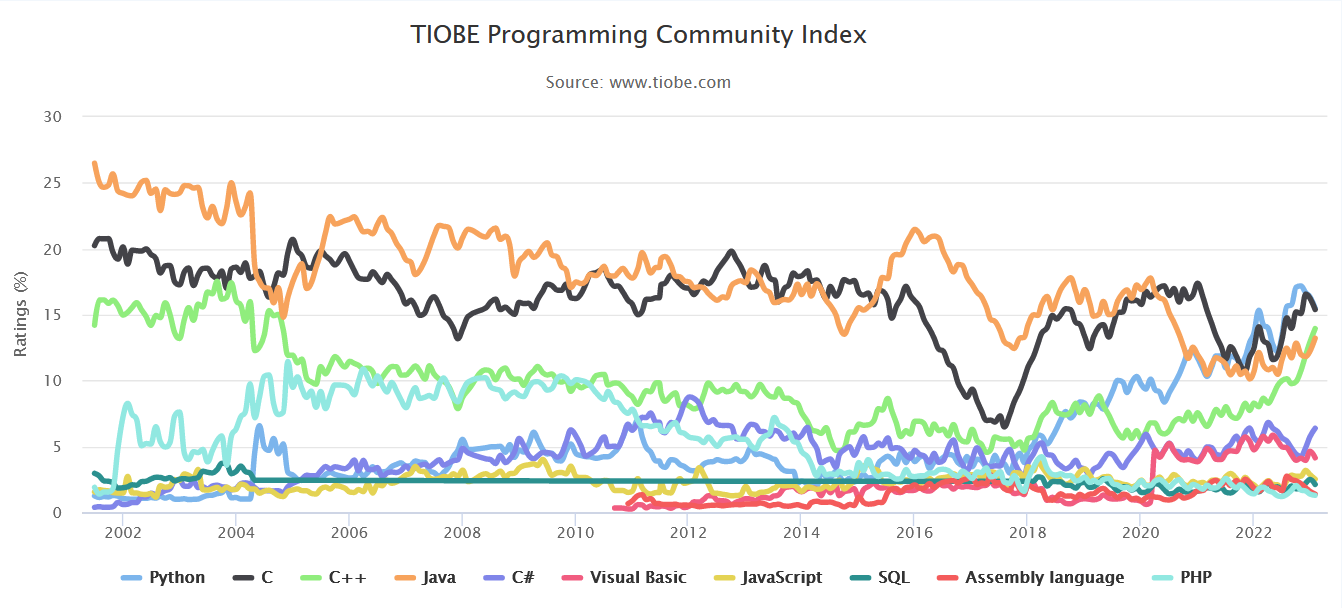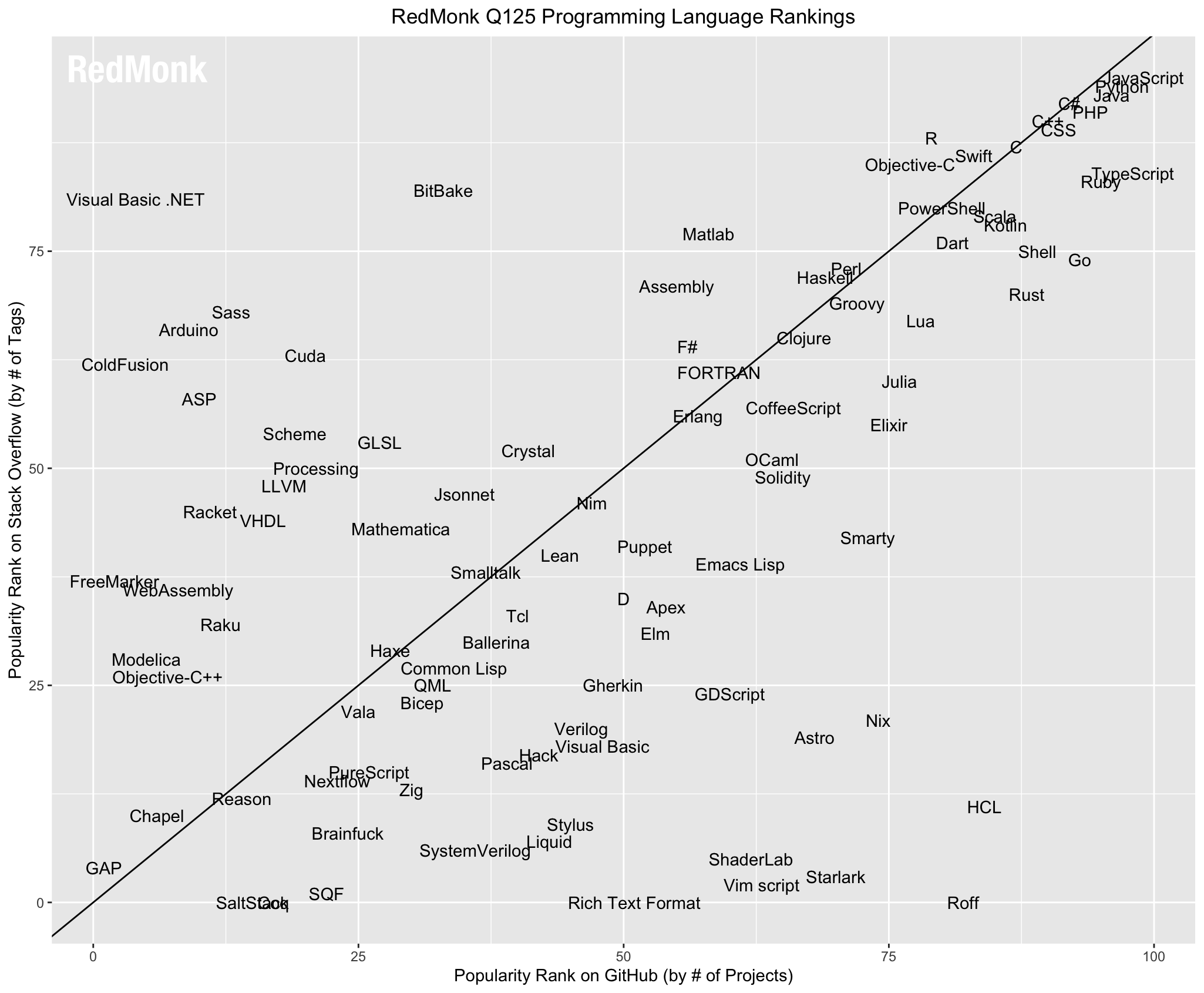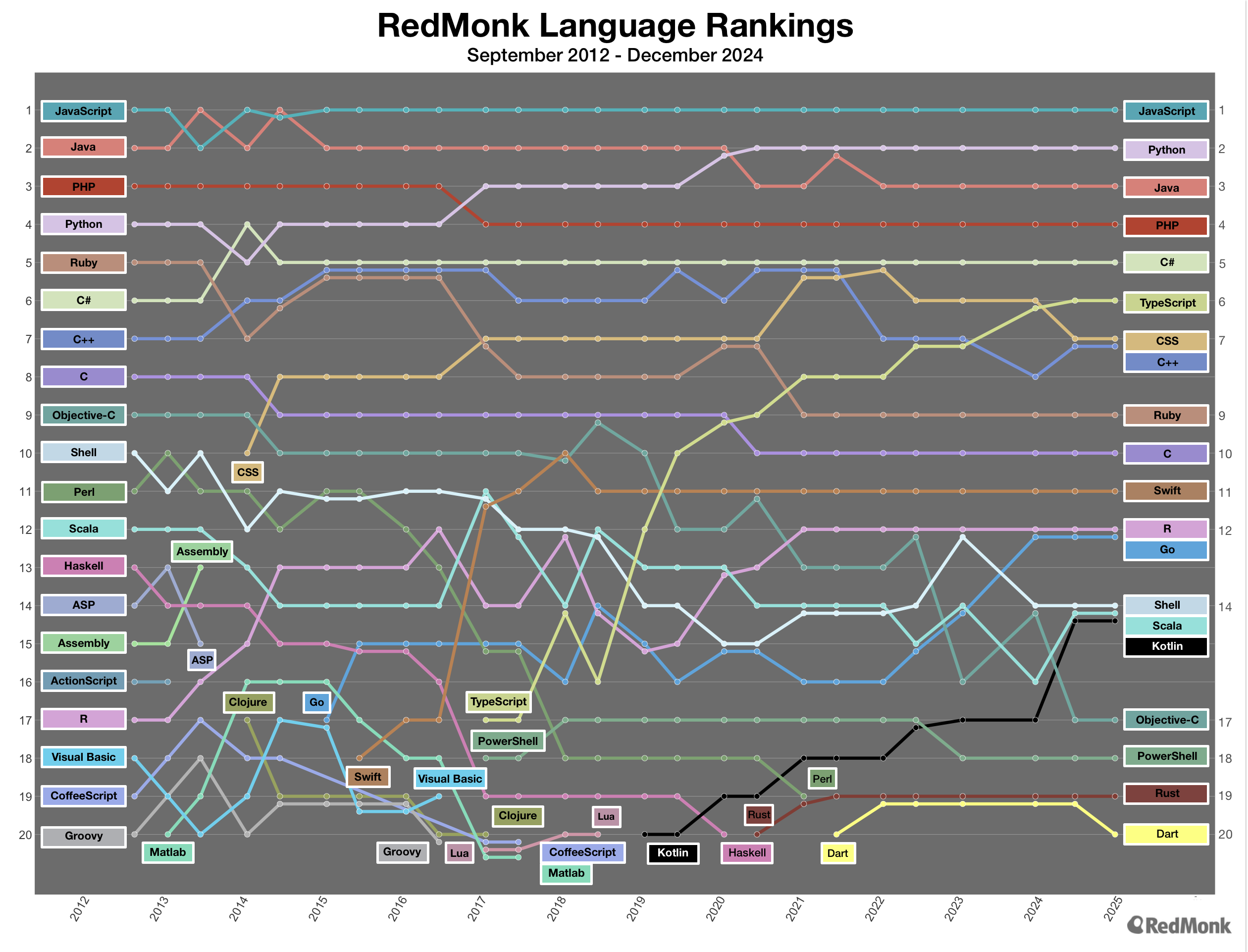JDK 1.0 (January 23, 1996)
JDK 1.1 (February 19, 1997)
J2SE 1.2 (December 8, 1998)
J2SE 1.3 (May 8, 2000)
J2SE 1.4 (February 6, 2002)
J2SE 5.0 (September 30, 2004) <--- Scala: early 2004
Java SE 6 (December 11, 2006)
-- Sun acquisition by Oracle-- <--- Groovy 1.0: January 2, 2007
Java SE 7 (July 28, 2011)
Java SE 8 (March 18, 2014) <--- Kotlin 1.0: February 15, 2016
Java SE 9 (September 21, 2017)Core Java. Lecture #1
Overview of the history, features, and facilities of Java ecosystem
@inponomarev
Ivan Ponomarev, Synthesized.io/MIPT
 |
|
How to get in touch with me?
Course structure
Lectures
Labs
Homework
Labs and homework marks will define your final mark
Useful links
Useful books
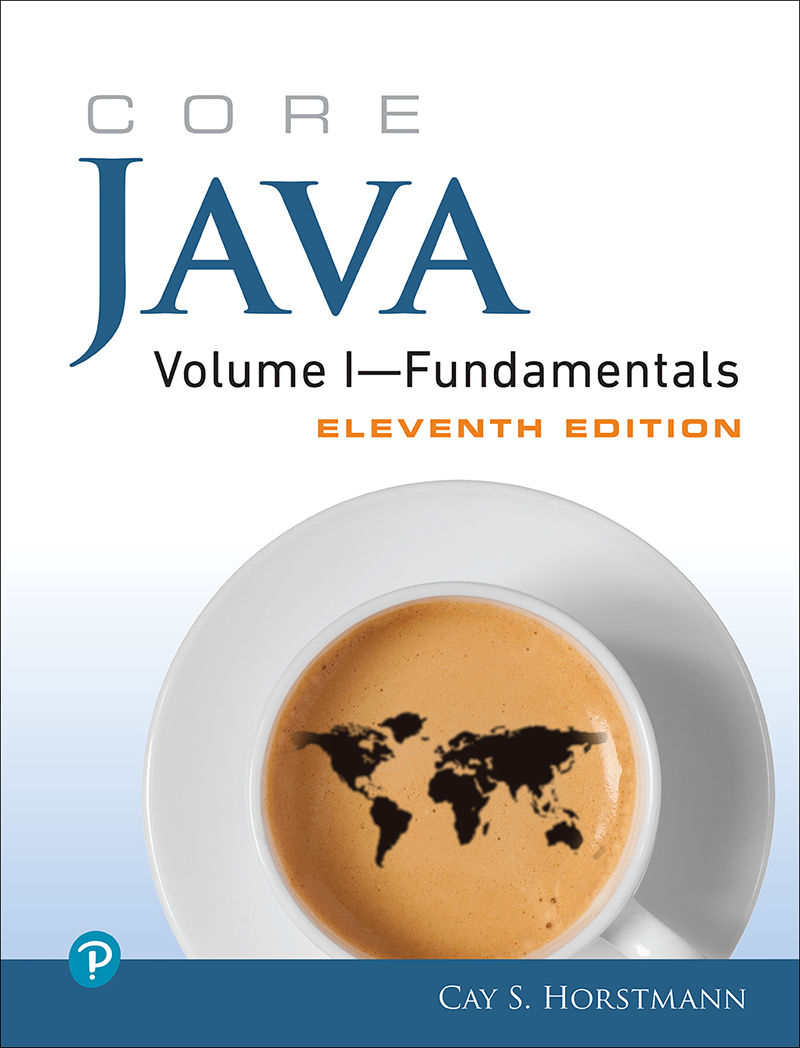 | 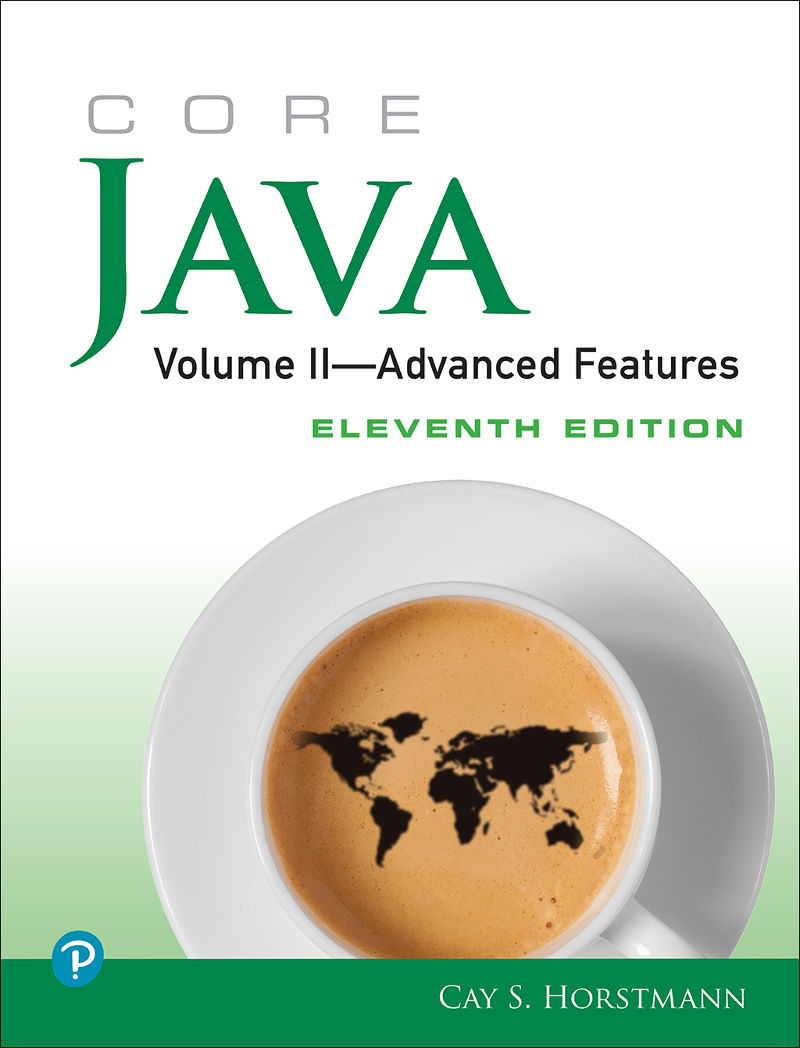 | 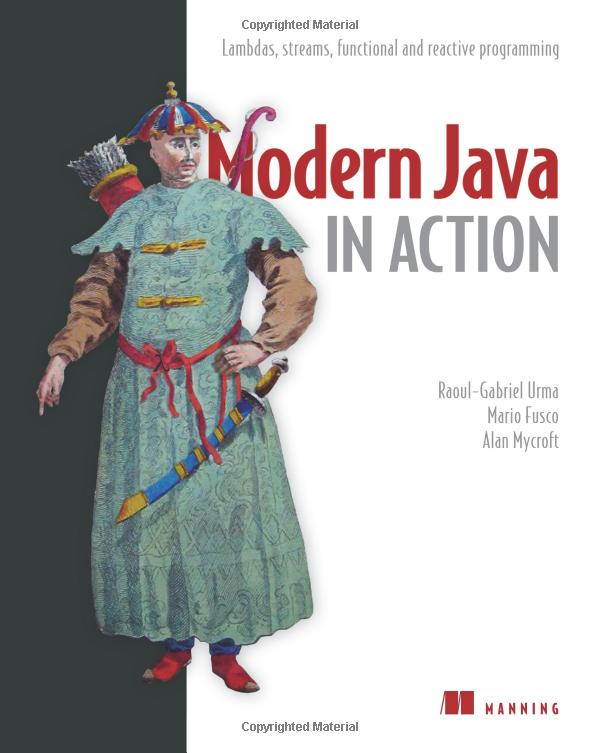 |
Cay S. Horstmann. Core Java vol 1 & 2
Raoul-Gabriel Urma et al. Modern Java in Action
Useful books (for advanced students)
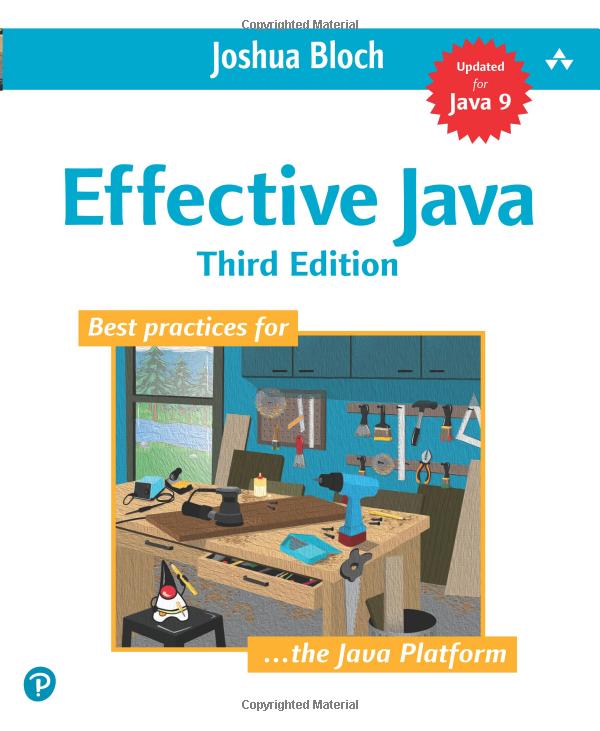 | 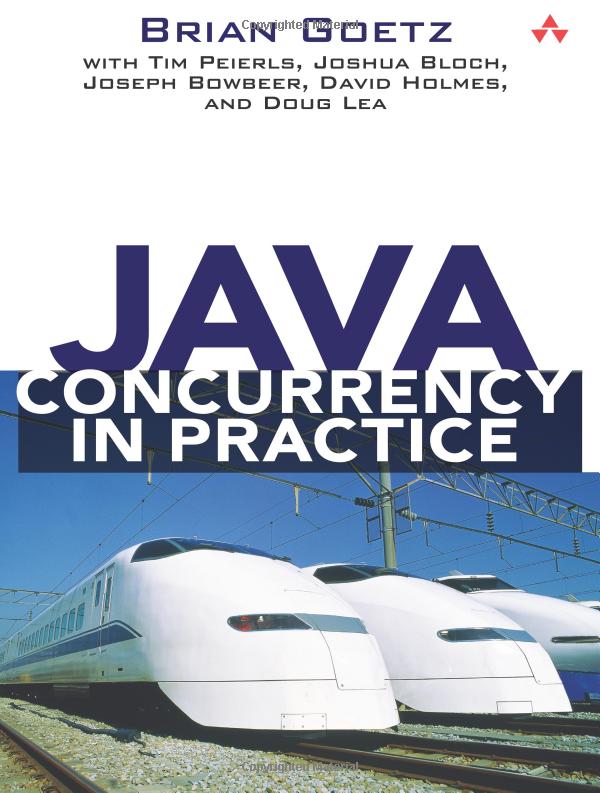 |
Joshua Bloch Effective Java
Brian Goetz et al. Java Concurrency in Practice
TIOBE Index (https://www.tiobe.com/tiobe-index/)
number of search engine results for queries containing the name of the language
covers searches in Google, Google Blogs, MSN, Yahoo!, Baidu, Wikipedia and YouTube
reflects the number of skilled engineers, courses and jobs worldwide
RedMonk
GitHub & StackOverflow
Three Decades of Java: Before Java 9
(source: Wikipedia)
Three Decades of Java: After Java 9
6-monthly release cadence
| |
(source: Wikipedia)
Java origins
 |
|
Q&A with James Gosling, June 2020:
https://www.youtube.com/watch?v=XThhlihqTXI
Question
How would you implement WORA?
Endianness…
Register size…
Continued
Браузерные "Апплеты"
Built-in security
Но Security сделать оказалось непросто
Апплеты не пошли (в браузерах победил JavaScript)
Nowadays
Desktop (?)
Embedded Systems
Server-side (backend)
Mobile Devices (Android) — a separate story (see Google vs. Oracle case)
Security and safety in design-time and in run-time
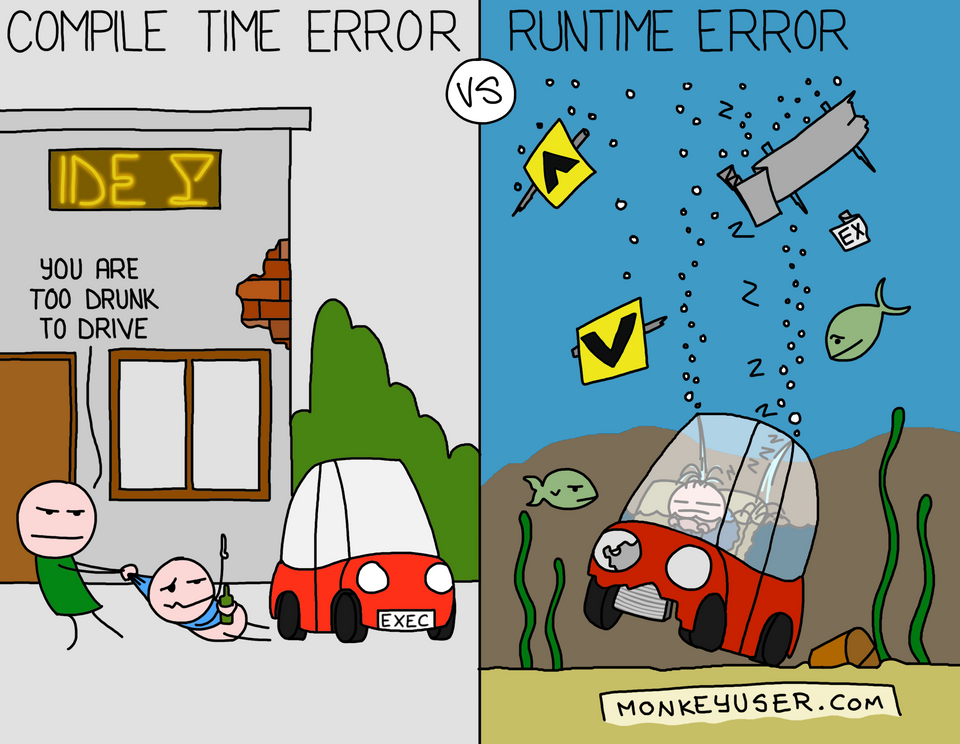
Virtual machine
WORA + two dependant tasks:
Safety
No fatal faults on server
Byte code generation and execution in a safe environment
Question
int i = 2;
i = ++i + ++i + ++i;Java — 12,
C — undefined behaviour
(https://stackoverflow.com/questions/3879176/i-i-i-in-java-vs-c)
Runtime errors are not catastrophic
NullPointerExceptionArrayIndexOutOfBoundsException
Java Virtual Machines
Reference implementation: Oracle HotSpot
~ 20 implementations
Virtual machine and platform services
Byte code, interpretation and JIT-compilation.
Garbage Collection
MultiThreading & Memory Model
Loading and running code in runtime
Reflection API
Standard library
Byte code verification
There are no operand stack overflows or underflows.
All local variable uses and stores are valid.
The arguments to all the Java Virtual Machine instructions are of valid types.
Interpretation and JIT compilation
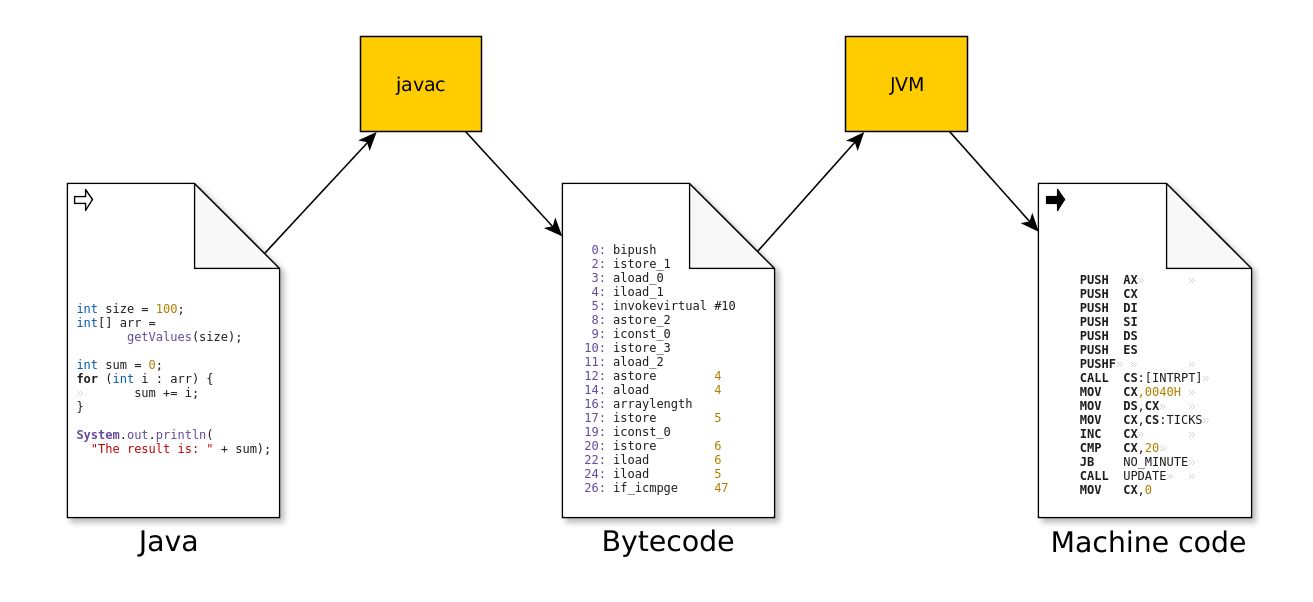
On-the-fly optimization
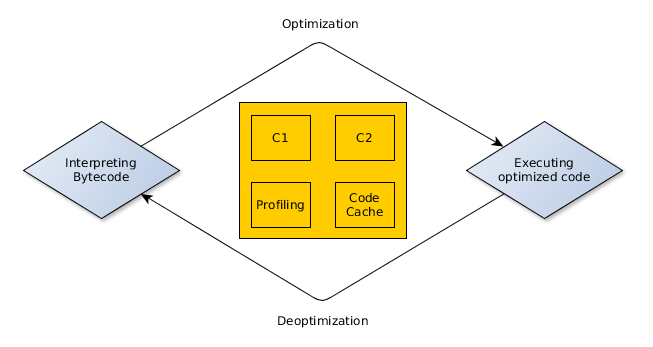
Garbage Collection
The developer does not need to worry about freeing up memory
Garbage collection when there are no references to the object
Advantages:
Less code
There are no invalid links (to destroyed objects)
Fewer memory leaks
Disadvantages:
We do not control the operating time of the GC
STW-pauses (sometimes at the inappropriate time)
How can GC be implemented?
Reference counting — cycles?
Mark & sweep
Generational hypothesis
Generational Hypothesis
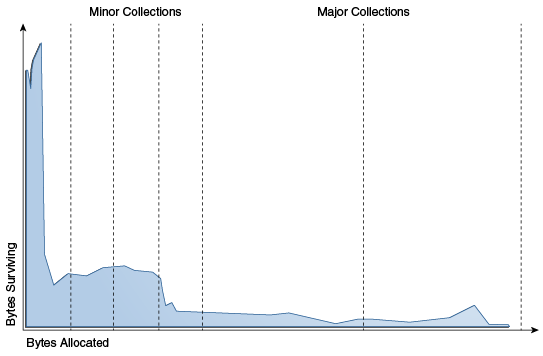
GC Types
Serial (for single-threaded, client environments)
Parallel (default)
CMS (Concurrent mark and Sweep — shorter pauses, share processor resources, deprecated in Java 9)
G1 (Garbage First — big heaps)
Shenandoah (submillisecond pauses)
Epsilon (no GC)
Latency vs. Throughput tradeoff

Multithreading
The ability to run parallel threads of execution is built into the language from the first version (
Thread,Runnableetc)JDK 1.5: significant improvements (executor, semaphore, mutex, barrier, latches, concurrent collections, blocking queues)
JDK 1.7:
ForkJoinPool(work-stealing technique)JDK 1.8:
CompletableFutureJava SE 21: Project Loom: virtual threads
Memory model
Memory Model: Part of the VM specification: a model of how the memory works
Answers the question: "what values can we possibly seen when we read a variable?"
When do we need a memory model?
class DumbWayToFallAsleep implements Runnable {
private boolean asleep;
public void setAsleep(boolean asleep){
this.asleep = asleep;
}
@Override
public void run() {
while (!asleep){
//countSomeSheep
//WILL WE FALL ASLEEP?
}
}
}When do we need a memory model?
class NotSoDumbWayToFallAsleep implements Runnable {
private volatile boolean asleep;
public void setAsleep(boolean asleep){
this.asleep = asleep;
}
@Override
public void run() {
while (!asleep){
//countSomeSheep
//...
}
}
}Loading and executing code in the runtime
Compiled class bytecode can be delivered to any system in the runtime (most often by saving a file to the file system).
Recompilation/linking is not required.
Built-in Serialization
An idea that seemed very good at first!
Reflection API
Explore information about classes, fields, methods, etc. at run time
Read/modify fields (including private!) and dynamically call methods (including private!)
Proxy and AOP
Continuously Improving Standard Library
System-independent part
Data structures
Mathematics
System-dependent part
Date and time
File system access
Network access
User Interface
Backward compatibility
Any .jar file compiled many years ago can be run on any modern JVM
A gift or a curse?
Criticism of the Java platform and language
Poor performance
Memory consumption
Slow startup
Verbose (too much "boilerplate code")
The language is conservative and is developing slowly
Criticism of the Java platform and language
Poor performance — no
Memory consumption — no
Slow startup — partially es
Verbose (too much "boilerplate code") — that’s true, but Lombok and modern Java versions fix this
The language is conservative and is developing slowly — nowadays, no
Развитие языка c 10й версии (6-months release cadence)
type inference (
var),switch expressions,
text blocks
sealed classes,
pattern matching (
instanceof,switch),records,
unnamed main classes,
virtual threads,
string templates (dropped)…
Current projects
Project Amber: productivity-oriented features
Project Loom: fibers & continuators
Project Valhalla: value types & generic specialization
Graal, Panama, Kulla, Sumatra…

Variety of JVM languages
There is a virtual machine: you can compile to the byte code from any language!
20-30 languages
Specially created for JVM: Groovy, Scala, Kotlin…
Re-implemented for JVM: JRuby, Clojure (Lisp dialect), Nashorn/Graal.js…
https://jaxenter.com/wp-content/uploads/2017/03/Pirates-of-the-JVM-JAXenter-768x4245.png
Essential elements of the ecosystem (beyond the standard library)
Libraries and frameworks (including testing)
Integrated Development Environments (IDEs)
Build systems
CI
JUnit
unit testing and test automation
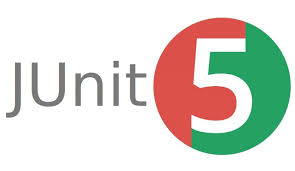
Spring Framework
DI container and application framework

Integrated Development Environments
IDEA (proprietary, JetBrains) | NetBeans (ASF / Oracle) |
Eclipse Foundation |
VS Code (Microsoft) |
Build systems
XML configuration |  Groovy DSL / Kotlin DSL |
Java community
JUGs (in big cities)
Conferences (Joker/JPoint/SnowOne, DevoXX etc.)
Oracle certification exams
OCA/OCP (search for "Oracle Java Certification")

Hello, world!
Build and run the jar file
